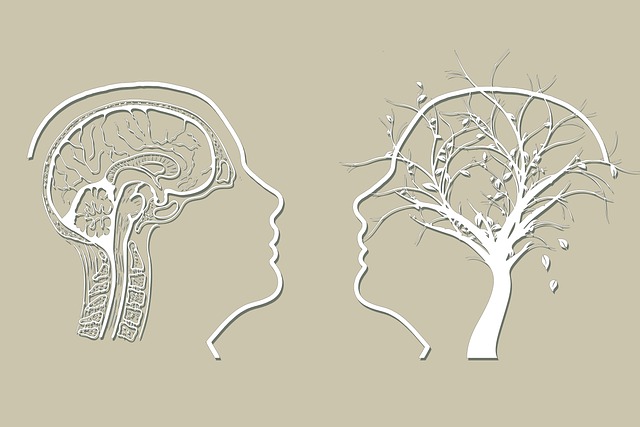Arvada Blended Families Therapy focuses on mood regulation as a key strategy for fostering healthy relationships and well-being in diverse families. Through self-awareness, cognitive behavioral techniques (CBT), mindfulness, and compassionate practices, family members learn to manage emotions effectively, improve communication, and build resilience against stressors and trauma. This holistic approach combines evidence-based stress reduction methods with open conflict resolution skills, strengthening family bonds and enhancing overall well-being.
In the dynamic landscape of Arvada Blended Families Therapy, understanding mood regulation becomes paramount. This article offers a comprehensive guide to mastering emotional well-being, particularly within blended family units. We explore foundational concepts, starting with deciphering triggers and patterns in emotional responses. Next, we delve into evidence-based techniques like cognitive behavioral therapy (CBT) for effective mood management. Additionally, mindfulness and relaxation strategies are highlighted to foster calmness and emotional balance. Finally, we emphasize the importance of building resilient coping skills collectively, strengthening the family unit’s ability to navigate life’s challenges together.
- Understanding Mood Regulation: A Foundation for Blended Families
- Identifying Triggers and Patterns in Emotional Responses
- Cognitive Behavioral Techniques for Effective Mood Management
- Mindfulness and Relaxation Strategies for Calmness and Balance
- Building Resilient Coping Skills as a Family Unit
Understanding Mood Regulation: A Foundation for Blended Families

In the context of Arvada blended families therapy, understanding mood regulation is a cornerstone for fostering healthy relationships and well-being. Blended families often face unique challenges due to varying backgrounds, experiences, and emotional histories. Therefore, navigating and regulating moods becomes essential for creating a harmonious home environment. Mood regulation strategies equip family members with tools to manage their emotions effectively, leading to improved communication and stronger bonds.
By incorporating compassion cultivation practices and self-esteem improvement techniques, Arvada blended families can build resilience against potential stressors and trauma support services. These strategies encourage empathy, understanding, and patience, allowing each member to express themselves freely without fear of judgment. With the right tools, blended families can transform conflicts into opportunities for growth, cultivating a nurturing atmosphere that benefits everyone involved.
Identifying Triggers and Patterns in Emotional Responses

Understanding the triggers and patterns behind emotional responses is a crucial step in effective mood regulation. Many individuals, especially those navigating complex life situations like Arvada Blended Families Therapy, benefit from identifying what sets off their emotions. This process involves keen self-awareness and careful observation of one’s surroundings and interactions. By keeping a journal to record moods, thoughts, and events, people can start to recognize recurring themes and triggers. For example, certain conversations or environments might consistently evoke strong emotional reactions.
Cultural competency training for healthcare providers plays a vital role in assisting individuals with this process by offering tools for understanding the impact of cultural backgrounds on emotional expression. Trauma support services and coping skills development are also integral parts of helping folks decipher and manage their emotional responses. These strategies, combined with therapy, enable individuals to gain control over their moods, fostering healthier relationships and an improved quality of life.
Cognitive Behavioral Techniques for Effective Mood Management

Cognitive Behavioral Techniques (CBT) offer powerful tools for individuals seeking to manage their moods effectively. This therapeutic approach focuses on identifying and changing negative thought patterns, a key factor in emotional regulation. By addressing underlying beliefs and cognitive distortions, CBT enables people to develop healthier perspectives, leading to improved mood stability. For those in Arvada Blended Families Therapy, CBT can be highly beneficial, especially when combined with resilience-building strategies.
Resilience is a crucial aspect of mental well-being, allowing individuals to adapt and cope with stress. Healthcare providers skilled in cultural competency training can tailor these techniques to diverse populations, ensuring effective support for various backgrounds and experiences. Integrating CBT with stress management practices enhances emotional resilience, enabling clients to navigate challenges and maintain positive moods. This holistic approach, often embraced by Arvada-based therapists, empowers individuals to take control of their emotional health.
Mindfulness and Relaxation Strategies for Calmness and Balance

In today’s fast-paced world, maintaining emotional balance can be challenging, especially within Arvada blended families. Mindfulness and relaxation strategies offer powerful tools to cultivate calmness and restore equilibrium. Practices like compassion cultivation, a key component of many therapeutic approaches, encourage individuals to develop self-compassion and understanding, fostering healthier interactions within the family unit.
By incorporating mindfulness into daily routines, families can enhance their emotional intelligence and overall mental wellness. Simple techniques such as deep breathing exercises, meditation, or engaging in calming activities like yoga can significantly reduce stress levels and improve each member’s ability to regulate their moods effectively. These strategies not only benefit individuals but also create a more peaceful and supportive environment for the whole family, potentially reducing conflicts and promoting stronger connections.
Building Resilient Coping Skills as a Family Unit

Building resilient coping skills as a family unit is a cornerstone of Arvada Blended Families Therapy. In today’s fast-paced world, understanding and managing emotions effectively is crucial for maintaining mental health awareness among all members. By integrating evidence-based stress reduction methods, families can create a supportive environment that fosters open communication and conflict resolution techniques. This not only strengthens family bonds but also equips each individual with the tools to navigate life’s challenges with greater ease.
Through regular therapy sessions, families learn to identify triggers and develop personalized coping strategies tailored to their unique dynamics. By promoting active listening, empathy, and problem-solving skills, these practices empower everyone involved. The result is a more harmonious home where emotions are regulated, conflicts are resolved constructively, and overall well-being is enhanced, making it a true testament to the transformative power of family therapy.
In navigating the complexities of Arvada blended families, understanding and regulating moods is key to fostering healthy relationships. By identifying emotional triggers, adopting cognitive behavioral techniques, incorporating mindfulness practices, and building resilient coping skills together, families can create a more harmonious environment. These strategies empower individuals within the family unit to manage their emotions effectively, leading to improved communication, reduced conflict, and enhanced overall well-being. Through Arvada blended families therapy, families can learn these valuable tools and forge stronger, more connected bonds.














